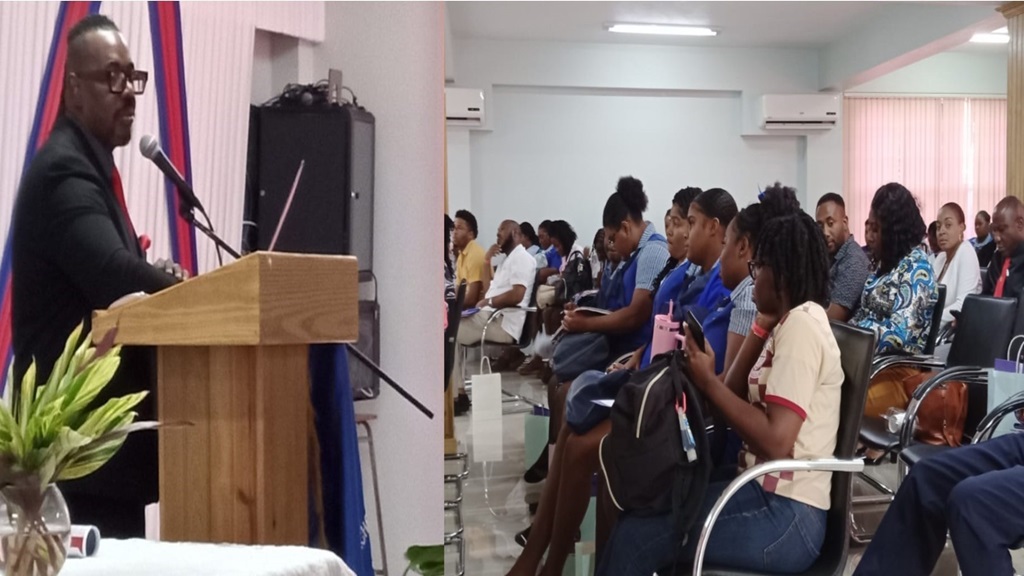

In a ground-breaking address that could reshape mathematics education across the Caribbean, distinguished academic Dr Andrew Hunte has challenged teachers to embrace artificial intelligence and radical new teaching methods to revolutionise how students learn mathematics.
Speaking at the third annual Sharp Mathematics Conference hosted by Sam Sharpe Teachers' College on Wednesday, November 13, Hunte delivered a thought-provoking message under the theme, ‘Applying the Fix -- Connecting the Disconnected,’ arguing that the traditional approach to mathematics education needs a complete overhaul.
"Teachers are the ones who can make a change; the change starts in the classroom," declared Hunte, who serves as Chairman of the Board of Governors at Trinidad and Tobago's National Institute of Higher Education, Research, Science and Technology (NIHERST), and Assistant Chief Examiner of Additional Mathematics at the Caribbean Examination Council (CXC).
In a prediction that captured the audience's attention, Hunte forecasted that by 2025, artificial intelligence will become an integral part of all educational institutions. He painted a vivid picture of future classrooms where students interact with AI chat bots for additional practice problems and personalised learning support.
"Imagine a classroom where students can input their class notes into ChatGPT and receive tailored practice problem? This isn't just about technology – it's about creating a passion for learning," Hunte said.
The mathematics expert, who holds a PhD in Curriculum and Instruction of Mathematics, challenged traditional assessment methods, advocating for oral examinations for students who better express themselves verbally.
He criticised the current system's overreliance on memorisation, stating that, "We need to get where students could internalise concepts, understand it and not just repeat it," he said.
Hunte also revealed changes coming to the CSEC mathematics examination, introducing what he termed "geometric calculation with number and explanation" – a new approach requiring students to identify errors in worked problems and explain why they are wrong, promoting higher-order thinking skills.
Hunte also called for the abandonment of colonial textbooks that fail to resonate with Caribbean students' experiences.
"We have to stop using these textbooks which have no meaning to what your students understand," he insisted.
The conference, which drew educators and student teachers from across the region, highlighted two key solutions for connecting with disconnected mathematics students. First, it is said that one must embrace technology and artificial intelligence in the classroom, and secondly, understand and adapt to students' individual needs, interests and learning styles
For teachers concerned about being replaced by technology, Hunte offered reassurance, explaining that AI should serve as a tool to handle administrative tasks and customise lesson plans, freeing educators to focus on creative and engaging teaching methods.
The Sharp Mathematics Conference has established itself as a leading forum for innovative teaching methods in the Caribbean, with this year's edition marking a decisive shift toward technology-enhanced mathematics education.
Related News

Three men fatally shot, cop injured during confrontation in Kingston

UWI student to be sentenced in November re gross assault of his ex

Shop the look: Lift your living space with Courts


